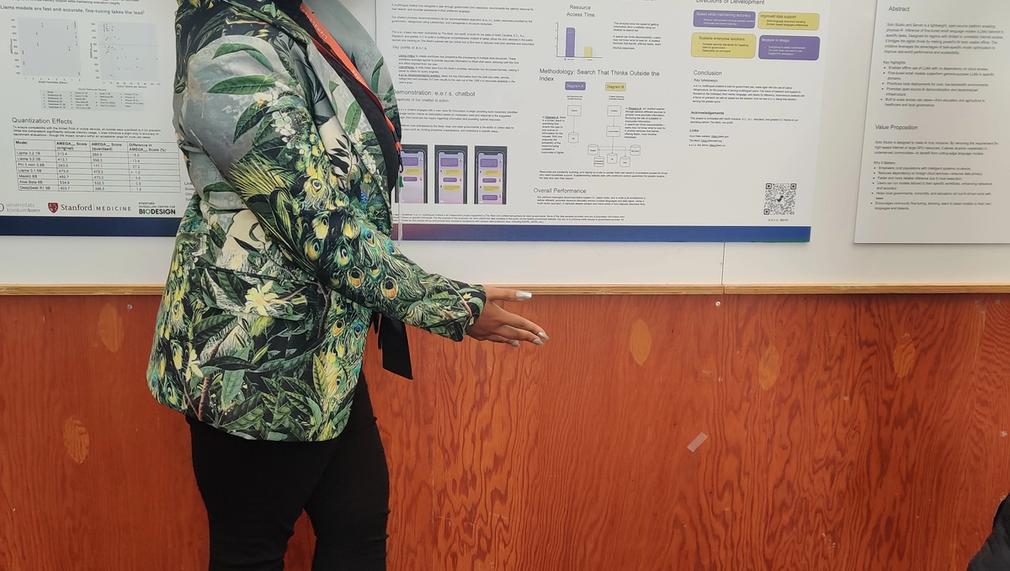e.e.r.s.
e.e.r.s is a multilingual chatbot for local, state and federal governments.
e.e.r.s. chatbot navigates a user through the govt database, recommends the optimal resource for their search, and provides assistance in their preferred language (140 languages available).

What is the primary issue area that your application will impact?
Community safety
In which areas of Los Angeles will you be directly working?
County of Los Angeles (select only if your project has a countywide benefit)
In what stage of innovation is this project, program, or initiative?
Pilot or new project, program, or initiative (testing or implementing a new idea)
What is your understanding of the issue that you are seeking to address?
e.e.r.s. solves the issue for social workers and constituents looking to navigate the congestion of government resources by providing a multilingual chatbot that guides the user to the optimal solution. This solution provides a major benefit to the government systems using it. The chatbot is able to track what resources are being oversubscribed or under-utilized in what communities. This consistent audit of public programs allows local, state, and federal governments the stats of what is being used in the community and what needs greater financial support during budgeting.
For natural disasters, e.e.r.s. could be a first responder. Providing constituents with up-to-date and accurate information from their local and city officials about evacuation plans and programs. And supply massive support to the administration during the years of aftermath by being the expert on the programs available to those effected.
Describe the project, program, or initiative this grant will support to address the issue.
e.e.r.s. provides a solution to the social and the economic impact of a city and state. For the first time, constituents can contact their government directly with complex civic service questions, in their preferred language (e.e.r.s. is offered in 140 languages), at any time, and receive assistance. Resources and information will no longer be a discoverability issue nor something too complex to understand. We see e.e.r.s. as a major alleviator and herald during natural disasters: the ultimate public servant during an overwhelming time.
Beyond natural disasters, e.e.r.s. supports social workers on a day-to-day: freeing up their time from researching available programs and who qualifies and allowing them to focus on the human aspect of their social work.
We're able to provide a tool to local, state, and federal governments that adhere to the equality and opportunity initiatives that the U.S. is founded on. The ability to access civic services and resources in someone's preferred language is already profound. To take it one step further by having a tool that can handle complex conversations and provide new localized resources is the future of smart cities. We at e.e.r.s. believe technology and AI should be used for the greater good of humanity. And we're proud to build and deploy e.e.r.s. with the intention of: being of good use to tax payer dollars, supporting communities, and being a force for good.
Describe how Los Angeles County will be different if your work is successful.
With the support of the Los Angeles Cleantech Incubator, e.e.r.s. offers a transformative solution to address civic service access, especially in underserved communities. Our AI-powered tool supports 140 languages and provides 24/7 assistance for complex government service inquiries—removing language and comprehension barriers that often prevent equitable access. In disaster scenarios, e.e.r.s. becomes a critical lifeline, and in daily use, it empowers social workers by streamlining program research and referrals. Designed with equity, accessibility, and community resilience at its core, e.e.r.s. aligns with L.A.’s goals for inclusive innovation and smart city infrastructure. We are committed to ensuring technology serves the public good—and that taxpayer investments deliver measurable, human-centered outcomes for Angelenos.
Approximately how many people will be impacted by this project, program, or initiative?
Direct Impact: 7,850,552
Indirect Impact: 10,019,635